Planning to work at a French cafe or already started your new role? Learning to say “you work at the cafe” in French (“Travaillez-vous au café?”) marks just the start of your language adventure.
A French cafe job demands more than simple French vocabulary. Your daily interactions will revolve around specific phrases. These range from taking orders with “Qu’est ce que je prends pour le cours de francais?” to talking with coworkers using expressions like “Je travaille dans un café.”
This piece will guide you through key French phrases needed for cafe work. You’ll discover everything from casual sayings like “Je bosse dans un café” to proper customer service language. These skills will prepare you for the various situations you’ll face in a French cafe environment.
Table of Contents
ToggleHow to Say You Work at the Cafe in French
A job at a French cafe requires you to learn some simple phrases. You can say “Je travaille dans un café” to tell people where you work.
Your casual chats with friends and coworkers might include the laid-back phrase “Je bosse dans un café.”. This everyday expression means the same thing but sounds friendlier.
Each role in a French cafe comes with its own title. Le serveur (male waiter) and la serveuse (female waitress) represent the most common jobs. Le garçon de café takes care of coffee service and smaller duties, while le chef de rang leads the waitstaff.
Le commis de salle works as a junior waiter and helps experienced staff members. Le maître d’hôtel takes charge of restaurant operations and ensures guests have a great experience.
Your French language skills become crucial as you interact with kitchen staff, supervisors, and regular customers in the cafe. Clear communication with both colleagues and guests demands adaptable language abilities.
French cafes employ specialists like le sommelier, who manages wine service and suggests perfect pairings. These position titles help you direct workplace relationships and understand your responsibilities better.
You can express your workplace location with “Je travaille dans” or “Je travaille à” based on context. Both phrases work well, though people use “Je travaille dans” commonly in cafe settings.
Essential French Cafe Vocabulary You Need to Know
Learning everything in French cafe vocabulary starts with daily phrases you’ll encounter. We focused on proper greetings and simple customer service expressions that lead to better communication.
Basic greeting and customer service phrases
“Bonjour! Installez-vous!” welcomes customers to take their seats. “Qu’est-ce que je vous sers?” or “Qu’est-ce qui vous ferait plaisir?” politely asks customers for their order. So customers should use “S’il vous plaît?” rather than the outdated term “garçon” to get attention.
Food and beverage terminology
The most common cafe beverages include:
● Un café noir or expresso: black coffee
● Café allongé: extended coffee with more water
● Café crème: coffee with cream
● Café au lait: milk coffee
● Café frappé: iced coffee
Like in many places, popular food terms include “pain” (bread), “tarte” (tart), and “salade niçoise” (salad with tomatoes, eggs, and tuna). These terms help staff provide accurate service to customers.
Numbers and pricing expressions
Payment handling needs specific phrases. “L’addition, s’il-vous-plaît!” requests the bill, and customers might ask “Ça fait combien, s’il-vous-plaît?” to know the total. Some cafes offer a tab system called “ardoise” – “Mettez ça sur mon ardoise!” means “Put this on my tab”.
Quick mental calculations are vital in busy hours. A good grasp of numbers helps process orders quickly. Customers might ask “Je pourrais avoir un sucre, s’il-vous-plaît?” to get extra sugar or “Vous pourriez m’apporter un autre verre d’eau?” to get another glass of water.
Mastering Customer Service Phrases in French
Customer service success in French cafes depends on knowing the right phrases for each situation. Let’s look at the essential expressions you need for different customer interactions.
Taking orders and making recommendations
Servers usually start with “Qu’est-ce que je vous sers?” or “Qu’est-ce qui vous ferait plaisir?” when taking orders. You can ask “Que me recommandez-vous?” to get suggestions about daily specials or popular items.
Most customers place orders using “Je vais prendre…” or “Je voudrais…” followed by their selection. A quick “Oui, tout de suite” works best to confirm you got their order.
Handling special requests and dietary restrictions
Dietary restrictions need extra care. Here are the common phrases you’ll hear:
● “Je suis végétarien(ne)” – I am vegetarian
● “Je suis allergique à…” – I am allergic to…
● “Sans gluten” – Gluten-free
● “Sans produits laitiers” – Dairy-free
Customers might ask “Est-ce que je peux remplacer le riz par des légumes?” for modifications. Having alternatives ready helps you handle special requests quickly.
Managing complaints and problems
Dealing with complaints needs a professional touch. Customers might say “Le plat est froid” if their food isn’t hot enough. A quick “Je suis désolé(e)” followed by fixing the problem works best.
You’ll hear “Il doit y avoir une erreur dans l’addition” when there’s a billing concern. Get the full picture and be clear about how you’re fixing the issue.
Customers might say “Ce n’est pas ce que j’ai commandé” if they need a dish replaced. Stay professional and fix it right away. For bigger issues, they might ask “Puis-je parler à votre patron s’il vous plaît”.
A simple “Tout s’est bien passé?” helps check if customers are happy. This extra attention builds great relationships with your guests.
Key Workplace Communication Skills
Success in French cafe communication depends on your ability to handle both formal and informal language styles. You need to communicate with different teams throughout your work day.
Talking with coworkers in French
French cafe workers use casual expressions with each other. “Est-ce que tu peux m’aider?” (Can you help me?) and “Tu pourrais m’expliquer ça?” (Could you explain this to me?) are common phrases between colleagues.
New staff members should feel at ease when asking for help. “Je n’ai pas été formé pour cela” (I haven’t been trained for this) helps you express limitations professionally. A simple “Merci pour le coup de main!” (Thanks for the help!) builds positive relationships at work.
Understanding kitchen terminology
The kitchen’s communication follows set protocols. L’aboyer announces orders to each kitchen section. Le tournant works as the rounds cook, and le saucier takes care of sauce preparation.
The French kitchen’s hierarchy has specialized roles:
● Le rotisseur: roast cook
● L’entremetier: vegetable cook
● Le potager: soup cook
● Le poissonier: fish cook
Coordinating with management
Management coordination needs formal communication. French business culture values courtesy and proper etiquette. The hierarchy matters, so address your supervisors with titles like “Monsieur” or “Madame”.
Many French professionals speak English, but using French earns their respect. “Le délai est trop court” (The deadline is too short) and “Nous n’avons pas les ressources” (We don’t have the resources) help you raise workplace concerns professionally.
French workplace’s culture values direct communication. Staff members discuss concerns with management openly and prefer honest feedback over sugarcoated responses.
This approach prevents operational problems from being overlooked. “Il y a une erreur dans ce document” (There is a mistake in this document) helps point out issues constructively.
Common Scenarios You’ll Encounter Working at the Cafe
French cafes need specific language skills to handle their unique daily scenarios. The staff must understand proper procedures to keep operations running smoothly during their work hours.
Opening and closing procedures
French cafes operate with distinct protocols at opening and closing times. Most restaurant kitchens close after 2 p.m. and 10 p.m., and many establishments shut down completely between 3 and 7 p.m. The staff should ask customers if they plan “Pour manger?” (to eat) or want drinks before seating them.
Tables with dishes and flatware are reserved exclusively for dining customers. The staff directs drink-only patrons to bare tables. The phrase “Pouvez-vous régler maintenant?” helps request payment before staff changes shifts.
Rush hour management phrases
Rush hours at French cafes need quick communication beyond simple service phrases. The staff uses “Juste un verre” or “Juste un café” to identify drink-only orders. Regular customers often say “Je suis un habitué” to indicate their daily visits.
Several cafes provide continuous service between standard meal times from 2 p.m. to 7 p.m. Staff members should maintain eye contact and respond when customers say “S’il vous plaît?” instead of waiting for hand signals.
Emergency situation vocabulary
French cafe staff must know specific vocabulary to handle emergencies. Common emergency phrases include:
● “Au secours!” – Help!
● “Urgence!” – Emergency!
● “Au feu!” – Fire!
● “Au voleur!” – Thief!
Medical emergencies require phrases like “J’ai besoin d’un médecin” (I need a doctor) or “Appelez une ambulance” (Call an ambulance). French emergency services use different numbers: 112 for general emergencies, 15 for medical services, 17 for police, and 18 for fire department.
Staff safety depends on understanding terms like “sortie de secours” (emergency exit) and “cordon sanitaire” (quarantine line). The phrase “Je suis blessé(e)” helps communicate injuries.
Tips for Improving Your French While Working
Learning French at a cafe is a chance to immerse yourself in the language. You can speed up your path to fluency by combining hands-on experience with structured learning.
Practice exercises for common phrases
Your French language skills grow naturally with daily practice routines. The French Class Café method helps you become fluent through ground interactions. We focused on copying native speakers’ pronunciation and intonation patterns.
You should record yourself speaking French phrases during regular practice sessions. These recordings help you spot areas where you need to improve. Your pronunciation and speaking confidence will grow quickly.
Language learning resources for cafe workers
Language learning apps work well alongside your workplace practice. 66% of language learners report improved results when they mix work with structured learning programs. Podcasts, audiobooks, and French movies give you extra exposure to native speech patterns.
The Sound More French Café runs special training that targets pronunciation problems common to English speakers. Native speaker practice sessions help you develop natural conversation flow. French conversation circles grouped by skill level are a great way to get structured practice.
Building confidence in speaking French
A positive mindset is the foundation of confident French speaking. Of course, your progress speeds up when you see mistakes as learning chances rather than failures. You build momentum in your language trip by setting realistic goals and celebrating small wins.
Visualization techniques boost your confidence before French conversations. Practice deep breathing exercises to reduce anxiety before speaking until you feel completely at ease. A supportive environment with fellow learners encourages regular practice.
Key confidence-building strategies include:
● Regular listening exercises
● Recording and analyzing your speech
● Conversation group participation
● Daily achievable goals
Mindfulness practices before French conversations help you focus better and reduce speaking anxiety. It also helps to surround yourself with supportive colleagues who understand the challenges of learning a language.
French speakers usually appreciate genuine efforts to learn their language. Some might switch to English when they hear an accent. Keep your steadfast dedication to speaking French, and politely ask to continue in French for practice.
Conclusion
A French cafe job needs more than simple language skills. You’ll need to learn key phrases, customer service expressions, and workplace terminology to succeed in this fast-paced setting.
Professional etiquette and clear communication are central to French cafe culture. The right greetings, order-taking phrases, and emergency vocabulary will prepare you for daily customer and colleague interactions.
Your language abilities grow naturally through real-life practice. Every conversation with customers and coworkers boosts your confidence in professional French speaking.
Elite French Tutoring’s specialized online classes (elitefrenchtutoring.com) are a great way to get these key skills before you start your cafe career.
Your steadfast dedication to learning will drive your success in a French cafe. The combination of improved language skills and hands-on experience helps you excel in this fulfilling career path.
FAQs
What are some essential French phrases for working in a cafe?
Key phrases include “Bonjour!” for greeting customers, “Qu’est-ce que je vous sers?” to take orders, and “L’addition, s’il-vous-plaît” when a customer requests the bill. For recommendations, use “Que me recommandez-vous?” It’s also important to know food and beverage terms like “café noir” (black coffee) and “pain” (bread).
How do I handle special requests or dietary restrictions in French?
Be prepared to understand phrases like “Je suis végétarien(ne)” (I am vegetarian) or “Je suis allergique à…” (I am allergic to…). For modifications, customers might ask, “Est-ce que je peux remplacer le riz par des légumes?” (Can I replace the rice with vegetables?). Always respond politely and offer alternatives when possible.
What’s the proper way to address colleagues and management in a French cafe?
Use casual expressions like “Est-ce que tu peux m’aider?” (Can you help me?) with coworkers. For management, maintain a formal tone and use titles like “Monsieur” or “Madame.”. Remember that French workplace culture values direct communication, so don’t hesitate to discuss concerns professionally.
How can I improve my French language skills while working at a cafe?
Combine workplace practice with structured learning. Use language learning apps, listen to French podcasts, and watch French movies. Record yourself speaking French phrases and analyze your pronunciation.
Participate in conversation groups and set achievable daily goals. Remember that most French speakers appreciate genuine efforts to learn their language.
What should I know about emergency situations in a French cafe?
Familiarize yourself with key emergency phrases such as “Au secours!” (Help!), “Urgence!” (Emergency!), and “Au feu!” (Fire!). For medical emergencies, use “J’ai besoin d’un médecin” (I need a doctor) or “Appelez une ambulance” (Call an ambulance). Know the emergency numbers: 112 for general emergencies, 15 for medical services, 17 for police, and 18 for fire department.





